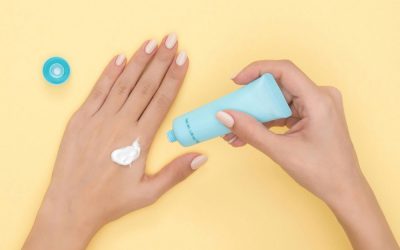Having worked with many toy manufacturers, distributors and representatives of toys for a number of years – I thought it would be useful to address some key concerns and questions in a post on behalf of the team at Delphic. This list has been built based on feedback from clients and answers from our in-house regulatory and compliance experts.
In short, these are a set of requirements that – if neglected – can jeopardise the commercial path of a toy product.
What is classified as a toy?
The Toy Safety Directive 2009 is a useful resource for all toy representatives. It helps to clearly set out what is and isn’t a toy according to EU regulation. Broadly speaking, those of you with an idea for a product must understand how your product addresses this question, which summarises the criteria in Article 2 of the directive.
Is your product designed or intended for use in play by children under 14 years of age? Forming your own answer to this question is a good starting point to understand whether what create will be considered a toy.
Categories and sub-categories
Our team deals with all sorts of toy products, which are all categorised and sub-categorised according to EU regulation. For example, we commonly get asked questions about “colouring and painting” products, as well as “craft” products. However, these categories are all further defined by multiple sub categories such as “creative hobby kits” or “writing or drawing articles”. From the outset, ensure that you have correctly identified your product category, as it will come with its own set of rules and regulations.
European and British toy standards – EN71
The British standards for taking a toy to market are the same as those in Europe. This is covered by a toy safety testing directive called EN71, which must be adhered to. Overlooking this set of rules is a criminal offence when producing and selling toys in the UK, which makes it extremely important for manufacturers and their consultants to clearly understand the rules. On a basic level, EN71 covers the following features:
- Mechanical
- Noise
- Flame retardance
- Chemical composition
- Electrical safety
- Sanitation
- Radiation
This is mandatory for any product that is being imported to, or manufactured in, Europe. To ensure you are compliant with the above aspects of your product, it is important to seek advice.
Overseas import and export
European requirements are some of the most stringent in the world, which means overseas manufacturers can find it difficult to comply. A study by China Importal states that less than 5% of all products on Alibaba.com, it’s biggest B2B wholesale website, is compliant with EN71. Before any non-European manufacturers export their toys, they should seek safety assessment advice from specialist EU regulatory and compliance teams who are familiar with EN71.
You must have a CE mark
These letters are an abbreviation of the French phrase, “Conformaté Européene”, and it is a declaration from the manufacturer that their product complies with essential European health, safety and environmental requirements. It also means that the product can go to market in all 30 Europe Economic Area (EEA) countries. By affixing a product with this, a manufacturer or a representative is taking responsibility for the conformity of the product.
Retailers of all shapes and sizes will also recognise a clear CE mark as will consumers, which will help the credibility of a product. As an importer, it is vital to keep an eye out for marks that don’t conform to the exact shape, font, colour and texture of a real CE mark. They are commonly forged by unscrupulous product manufacturers.
Other important details and marks
Instructions and relevant safety information should always come with toys. Importantly, manufacturers must detail about how or when hazards occur with a product. The next important markings are for traceability. Either on the packaging or in the instructions, there should be model type or batch number that serve as a marker for manufacturers – just in case they need to recall products as a result of future issues.
Our team at Delphic are specialists at offering sound advice for the safe creation and promotion of toys in Europe. We work local producers and overseas importers, offering on-the-ground advice. If you would like to speak with our specialist team, contact us on +44 (0)1252 856 700.

Learn more about Delphic HSE
FREE Webinar: Understanding the Latest Changes to the CSAR Safety Assessment Requirements
Delphic HSE is pleased to announce our latest Training Webinar – Understanding the Latest Changes to the CSAR Safety Assessment Requirements.
Safety in Beauty Conference 2025
Join us at the Safety in Beauty Conference 2025, proudly sponsored by Delphic HSE, for an unmissable opportunity to stay ahead in beauty safety and compliance.
2024 China Fragrances, Flavours and Cosmetics Industry Annual Meeting and Expo
Delphic HSE to Attend the 2024 China Fragrances, Flavours, and Cosmetics Industry Annual Meeting and Expo in Nanjing – BOOK TO SEE US AT THE EVENT


